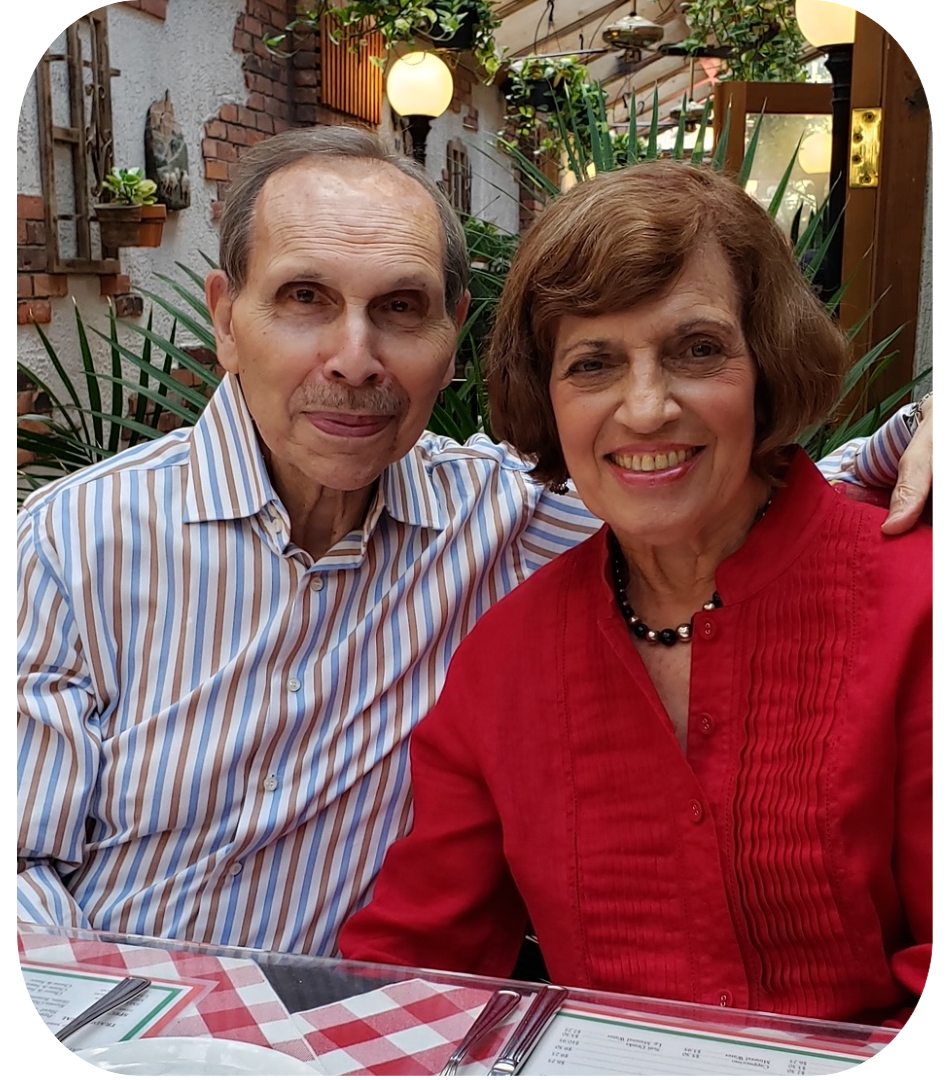Peer Support Volunteers Joel and Debrah Weiss Give Back
In the fall of 2015, Joel Weiss started experiencing pain in his mid-back. It persisted enough that he reached out to his doctor, who ordered an ultrasound and bloodwork. The results revealed that his lipase count, which measures a protein created in the pancreas, was sky-high. “Most people don’t know anything about the pancreas except that it’s involved in diabetes,” Joel said. “My first thought was, ‘my God, I have cancer.’”
Unfortunately, Joel’s fears were confirmed by an MRI. He was diagnosed with stage III pancreatic cancer, which, although advanced, was not without options for care. Joel worked with a team of doctors at Princess Margaret Cancer Centre and Sunnybrook Health Sciences Centre in Toronto, where he currently lives, and went as far as Columbia University Irving Medical Center in New York City for consultation and surgery. After a long treatment journey that included the platinum chemotherapy FOLFIRINOX, enzyme and white blood count boosters, the nano-knife and Whipple procedures, and rounds of Stereotactic Body Radiation Therapy (SBRT), Joel now celebrates five years as a pancreatic cancer survivor. Much of his care and support he credits to his wife Debrah, who was by his side supporting him every step of the way. “Through it all, my wife was an incredible caregiver. Just incredible.”
A motivation to give back
It is with other patients and caregivers in mind that Joel and Debrah now volunteer their time with Pancreatic Cancer Canada’s Peer Support program, which is a free service in collaboration with the cancer support experts at Wellspring.

Joel & Debrah Weiss
Pancreatic cancer survivor Joel Weiss and his wife Debrah have turned their personal journey with this disease into support that offers comfort, encouragement, and information to Canadians.
“We feel so fortunate, we want to give back in any way we can,” Joel said. “One of the things Debrah and I represent is hope. When I would tell people that I had pancreatic cancer, I could see in their eyes that they thought they would be going to my funeral. In terms of the number of people who survive, it’s the worst cancer. That’s why we decided to get involved.”
Joel was no stranger to counselling others going through their own pancreatic cancer journeys. Early on in his recovery, acquaintances who were recently diagnosed with pancreatic cancer were referred to him to learn from his personal experience and insights. “I had been informally meeting with people. Friends of family members would call me and ask if I would speak with someone they knew, and I’d spend hours talking to them. Then I met with the staff at Wellspring, and they told us about the Peer Support program with Pancreatic Cancer Canada. Both my wife and I decided to be trained as Peer Support volunteers. Debrah works with caregivers, and I work with patients. The staff have always been attentive and wondered if I need a break from volunteering, but I haven’t needed that. They offer an incredible amount of support, the more I know the more impressed I am.”
Providing highly specialized support
Since 2018, PCC’s Peer Support program has provided highly specialized care, making it an effective and important resource for our community. All Peer Support volunteers have had personal experience with pancreatic cancer and are matched as closely as possible in situation to the person accessing support. The program also offers short-term counselling to those who would benefit from speaking to a professionally trained counsellor. Both levels of service are free to access and open to all patients, survivors, caregivers, loved ones, and those who are bereaved.
“The Peer Support my wife has given has been very successful. A number of caregivers have lost their spouses, but they continue to want to speak with her. Participants will say, ‘Well, I am speaking with a professional, but they haven’t been through what you’ve been through.’ So, I think that’s a great plus for the program.”
Since the beginning of the COVID-19 pandemic, access to Peer Support has doubled as patients, caregivers and all members of our community have had to adapt to the compounded stress and anxiety created by further isolation. For many it has been a lifeline for comfort, information, and support.
“I look back on my pancreatic cancer journey and think, that was pretty tough,” Joel said. “My wife and I still talk about it, but I think I’ve got a pretty good mental setting for dealing with this, especially when it comes to helping others. One of the things I offer is hope: if I can make it through, you have the possibility of making it through.”
To learn more about our Patient and Family Support services click here.
To apply to be a Peer Support volunteer, click here.
To read more about Joel’s treatment experience and pancreatic cancer journey from our partners at Let’s Win click here.

Recent Comments